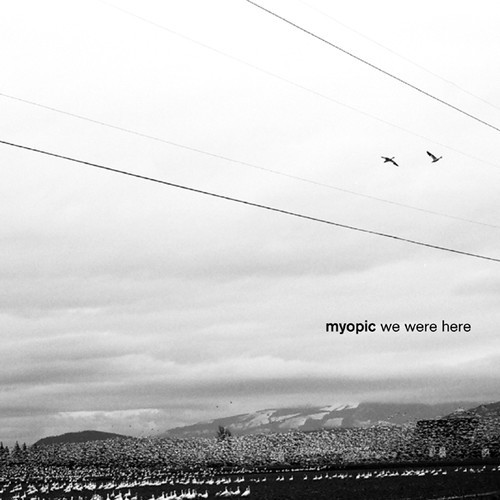Jeff Ryan has sat behind a drum kit for some of indie music’s most well-regarded artists. And aside from playing with the likes of St. Vincent, The Baptist Generals, and The War on Drugs, he has been steadily churning out his own unique brand of dynamic ambient soundscapes for some time. But let’s be clear. Ryan doesn’t navel gaze or swirl formless notes in front of his listener hoping that something resembling a melody appears out of the haze. His songs have structure and seem to have an almost preternatural ability to dive deep down into the recesses of your brain and settle in quite comfortably. His latest record We Were Here, which is due out at the end of February on Simulacra Records, continues his explorations into the often Godspeed You! Black Emperor-esque side of layered, and oftentimes dense, instrumental music. To his credit though, under his myopic moniker, Ryan is able to achieve a very developed sense of range and dynamism in what is often perceived as a lackadaiscial, and even casually dismissed, approach to post-rock tropes. And though his songs don’t approach the length and breadth of GY!BE at their most tonally labyrinthine, they do manage to hit the same kind of sweet notes that fans of Godspeed find so mesmerizing.
On his first single from We Were Here, the cathartic slow-burner “Jura,” Ryan mixes simple drone aspects–calmly repetitive piano, a softly echoing violin, and rising percussion–to create something that wouldn’t have felt out of place on the latest Sigur Ros or GY!BE records. When talking about the song Ryan says that “…during my first visit [to Scotland], there was a moment when I stepped out of myself, and for a second everything made sense…” Like the best instrumental music, “Jura” feels familiar but also otherworldly. Listening to the softly drawn bow of the violin as it plays against the gently struck piano keys, you can almost remember some wisp of a memory associated with these sounds. There is a beauty and a casual ecstaticism at work here that captures that unbridled feeling of joy which Ryan must have felt during his time in Scotland. As the song reaches its end, and the percussion rises to more than just a dim whisper, “Jura” opens up and swallows everything around it. There are no crashing waves of cymbals or martial drums, only a single tremulous violin, some restrained piano, and a continually shuffling drum beat to evoke that feeling of conscious recognition of the world around you and your place in it. And that’s a damn fine thing for any song to accomplish.

